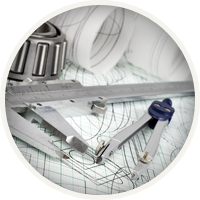
Dreaming of a job where a water view comes standard? A port engineer specializes in planning and constructing the many elements that make up a harbor: Waterways, terminals, canals, and piers are a few examples of projects you might work on in this field. This job is ideal for someone who loves being around boats, but doesn't necessarily want to work on a ship full-time, though travel can be one of the perks. Along with planning for new construction, port engineers are expected to inspect existing buildings and oversee necessary repairs. Of course, there's a major challenge of working in this field—the wet stuff itself. Knowing how to protect your structures from tidal surges, wear-and-tear from water damage, and effects from storms like hurricanes is essential. An undergraduate degree in civil engineering (the branch that deals with projects that are part of the physical environment) is a necessity, as is plenty of experience working in maritime environments. The job offers quite a bit of flexibility: You could work for the government or at a private company, and port engineers are needed for all types of locations, from small rural reservoirs to cruise-ship terminals in major cities.
The Details
Besides working on harbors and ports, these engineers also collaborate with scientists to design systems like levees that protect coastal cities from storm surge and flooding due to hurricanes.
The Port of Houston moves more than 200 million tons of cargo each year, and work related to its comings and goings creates more than a million jobs.






